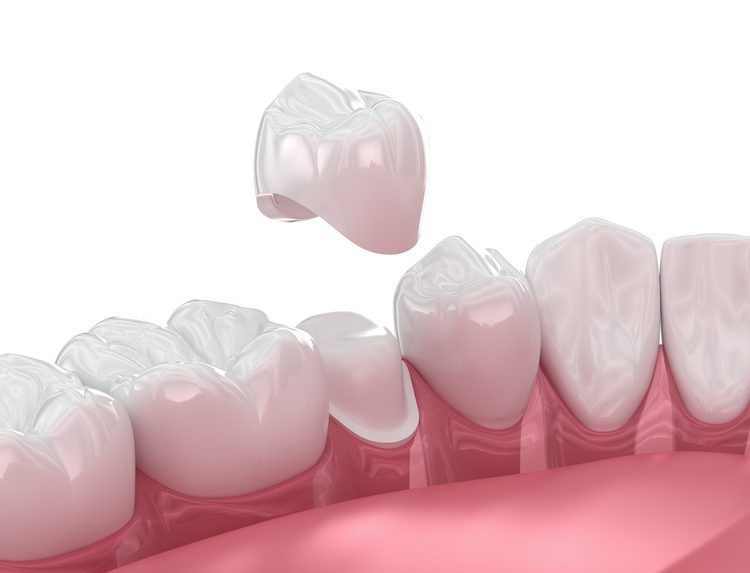Dental crowns serve an essential role in restorative dentistry. They cover and protect damaged teeth. Dentists recommend crowns for various reasons. Crowns could restore a tooth’s shape and size. They may also improve a tooth’s strength and appearance. Understanding what to expect when getting a dental crown could help reduce anxiety and ensure you get the treatment you need.
The Initial Dental Appointment
Your journey begins with a dental consultation. The dentist will examine your teeth to determine if a crown is necessary. X-rays may be taken to assess the tooth’s condition. These images help the dentist see below the gumline. Your dentist will discuss your treatment options, as a dental crown may not be the only option. Other treatment options could include porcelain veneers or even dental bonding.
The Tooth Preparation Process
The dentist will prepare your tooth for the crown. They will numb the area with a local anesthetic to help ensure you feel no pain during the procedure. The dentist will then shape the tooth. This involves removing some enamel. Your dentist will make room for the crown to fit properly. Tooth preparation requires precision and skill. The dentist must balance removing enough enamel while preserving tooth structure. This step is crucial for the crown’s success.
Taking Impressions of Your Teeth
After shaping the tooth, the dentist will take impressions. These impressions create a model of your teeth. Your dentist uses this model to design your crown. Accurate impressions better ensure a perfect fit. The dentist may use digital scanning technology to enhance precision and comfort. Traditional impressions involve a putty-like material. Digital impressions use a small camera to capture images. Both methods often provide detailed models for the dental lab. The dentist will choose the best method for your situation.
Placing the Temporary Crown
You will likely receive a temporary crown while the permanent one is made. The dentist will place the temporary crown over your tooth. Temporary crowns help protect the prepared tooth and maintain the tooth’s function and appearance. You must take care of the temporary crown. Avoid sticky or hard foods. These can dislodge or damage the crown. Chew on the opposite side of your mouth if possible. Use caution when flossing around the temporary crown. Slide the floss out instead of lifting it. This helps prevent accidental removal of the dental crown.
Fitting the Permanent Crown
Once the permanent crown is ready, you will return to the dentist. The dentist will remove the temporary crown. They will clean the tooth and check the fit of the new crown. Your dentist will make necessary adjustments for comfort and alignment. Once satisfied, they will cement the crown in place. This secures the crown and restores your tooth’s function. The dentist will check your bite to ensure proper alignment. They may polish the crown for a smooth finish.
Post-Procedure Care and Maintenance
Caring for your new crown is crucial. Practice good oral hygiene daily. Brush twice a day and floss regularly. Avoid biting down on hard objects. This can damage the crown. Visit your dentist regularly for check-ups. They will monitor the crown’s condition. With proper care, your dental crown can last many years. If you experience discomfort, contact your dentist. They can address any issues promptly. A well-maintained crown contributes to overall oral health.
Potential Complications and How to Address Them
Complications can occur with dental crowns. You may experience sensitivity to hot or cold. This usually subsides after a few days. If it persists, consult your dentist. Crowns can also become loose or fall off. If this happens, contact your dentist immediately. They will re-cement the crown or replace it if necessary. In rare cases, the crown may chip or crack. Your dentist can repair minor damage. Severe damage may require a new crown. Regular dental visits help prevent complications.
Dental Crowns in Midland, TX
Dr. Michael Courter and his team are dedicated to your oral health. If you have or need a dental crown, they are here to help. Contact their office today to schedule a consultation and learn more about restorative dentistry care.

